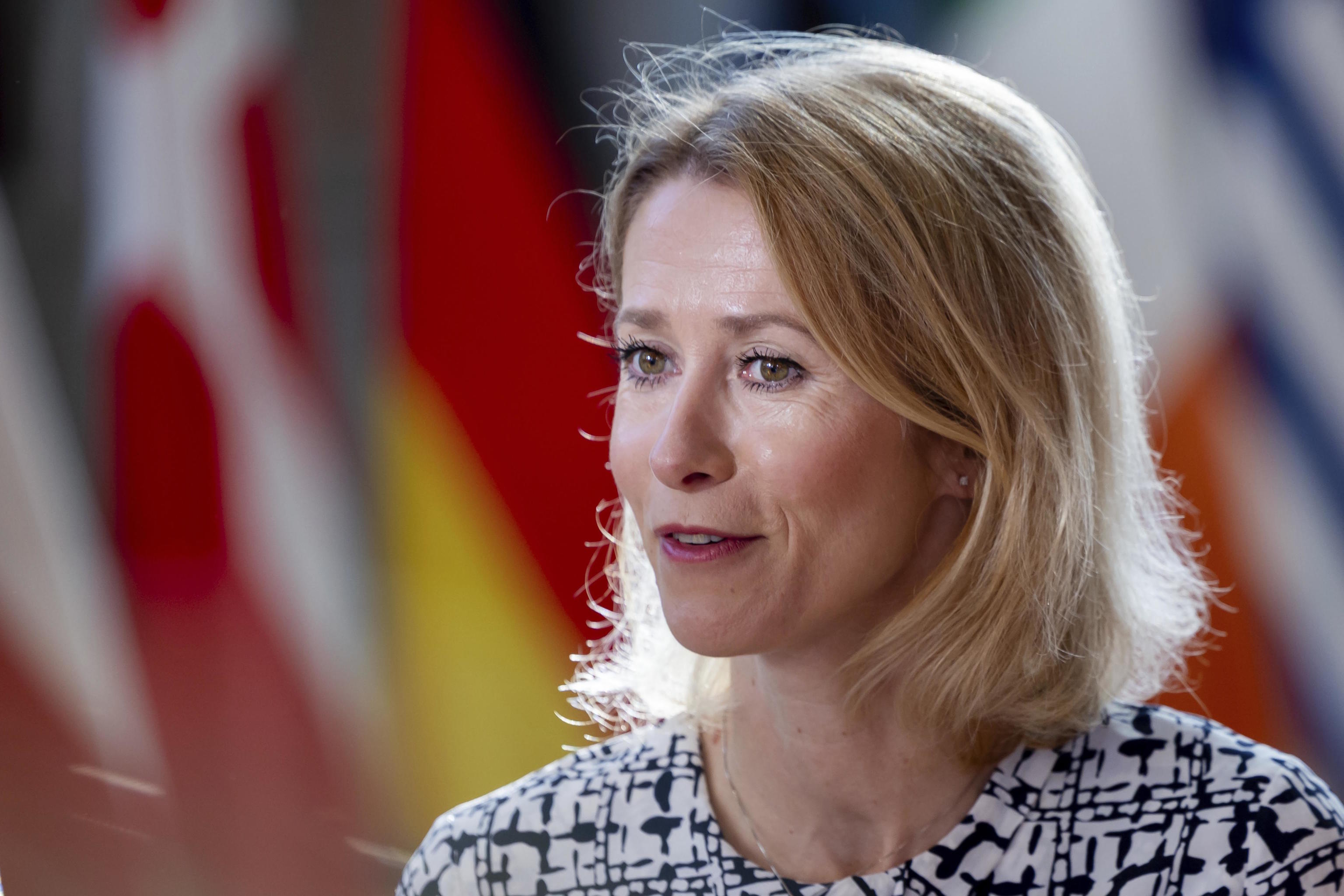The 18th package of sanctions against Russia remains unapproved in Brussels. It is the same package that two months ago was announced by the President of the European Commission, Ursula von der Leyen, during the meeting of the European Political Community held in Tirana (Albania) in May. This means that the action has been blocked for two months, and this Monday it was rejected again due to Slovakia's refusal.
"I am very sad because we have not reached this agreement. I must say that we were really close to reassuring Slovakia. The Commission has complied with what was requested. Now the ball is in Slovakia's court, and we must reach this agreement," acknowledged the EU's High Representative for Foreign Affairs, Kaja Kallas, in the press conference following the meeting of Foreign Ministers held in Brussels.
The EU's foreign policy chief added that there is still a technical-level meeting tomorrow, and she wanted to maintain "optimism" towards a possible agreement. But the reality is that it seems very complicated.
Just as Kallas expressed her sadness over the EU's inability to reach an agreement, Slovak Prime Minister Robert Fico published a letter stating his position: he does not support the 18th package of sanctions, which includes restrictions on Russian oil and new sanctions on the country's banking sector, nor does he support the plan to completely stop relying on Russian gas by 2028, which is also being considered by the EU.
"The ruling coalition rejects the stupid proposal of the European Commission to stop the flow of Russian gas from 2028," Fico, the populist leader closely aligned with Vladimir Putin who governs Slovakia, clearly stated in his letter.
"The best solution would be to grant Slovakia an exemption that allows it to fulfill the contract with the Russian company Gazprom until its expiration in 2034, which the European Commission rejects in principle, as implementing this proposal would undermine the essence of the anti-Russian sanctions," emphasized Putin's Slovak satellite. The situation seems very complicated.
During Kallas's press conference, the EU's foreign policy chief also revealed that Russia is using chemical weapons in Ukraine. She pointed out that the intelligence services of Germany and the Netherlands have recently disclosed this, indicating that it is a new indication that Putin wants to cause as much harm as possible and does not want peace at all.
Regarding Israel, the EU did not consider the request made by the Spanish Minister of Foreign Affairs, José Manuel Albares, who demanded the suspension of relations with Israel, "at least," as long as "the war in Gaza continues." "If we have concluded that there is a violation of Human Rights that clashes with Article 2 of the Association Agreement, it is logical for Spain to proceed with the suspension of that Association Agreement as long as this situation persists," added the Spanish minister.
However, Kallas responded that she sees "positive signs" since the EU agreed with Israel to respect the delivery of humanitarian aid. "We see more trucks, more entry points opening, power lines being repaired," noted the foreign policy chief, who also added that the country led by Benjamin Netanyahu "must do more."
"It has to take more concrete steps to improve the humanitarian situation," she continued, indicating that she presented a list of measures to the Foreign Ministers to increase pressure on Israel.
"We had a discussion about this, and these are choices that the Member States must make, and we will keep these options on the table and are ready to act if Israel does not fulfill its commitments," Kallas stated. But the main goal is clear: "The aim is not to punish Israel. The aim is to genuinely improve the situation in Gaza."
